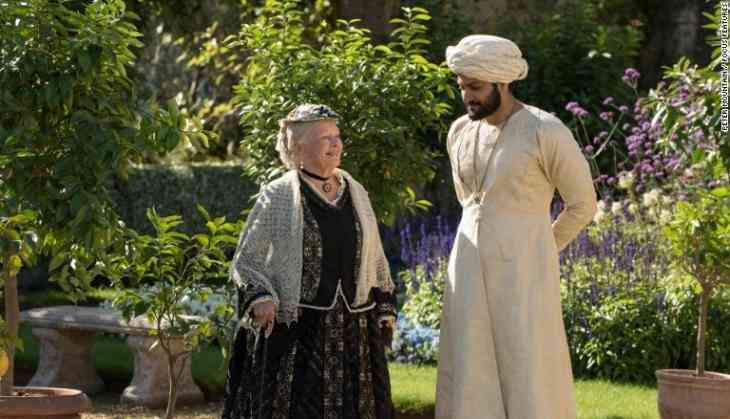Victoria and Abdul movie review: Shockingly racist white saviour garbage

In August, on the seventieth anniversary of one of India's most painful moments – Partition – the Western world gifted us a real turd of a film. A bizarrely tone deaf offering, Gurinder Chadha's Viceroy's House was positively slavish in its worship of British imperialism. Glossing over the untold suffering caused by the British Raj, it paints them as benevolent saviours and martyrs.
Now, scarcely a month on from that abomination, comes Stephen Frear's latest offering – Victoria and Abdul. V&A is a movie that manages to be equal parts creepy and racist as it casually paints over the British rule of India, making out that Indians were willing slaves fawning over our colonial masters.
A grossly insensitive offering, it should offend anyone with even a flicker of intelligence left. Frear can probably be forgiven more than Chadha – whose family were directly affected by Partition – but that doesn't forgive the fact that this movie is patently offensive.
The plot
The movie is centered around the real-life story of Abdul Karim (Ali Fazal), a simple clerk in the employ of the British. A simpering, doltish man-child, Karim lives to serve his British masters, and his ultimate wetdream comes true when he is abruptly uprooted and carted across oceans to present Queen Victoria (Judy Dench) with a gift she neither wants nor appreciates.
Despite her apathy toward the gift, the Queen takes a fancy to Karim, striking up an unlikely friendship that upsets the royal household. The film follows Karim as he plays the 'good' Indian, gormlessly grovelling in front of the queen like the royal pooch before meal time.
From literally kissing her feet to pledging his undying loyalty to the British, Karim's servility sees him rise up the ranks as the film does its best to portray Victoria as a progressive, liberal ruler.
Where do we even begin?
For starters, the entire attempt to portray the Raj as benevolent rulers of willing simpletons is abhorrent in itself. The equation between Karim and Victoria is deeply troubling, as despite any affection the movie seems to show between the two, they ultimately never transcend the owner-property dynamic.
Victoria may call Karim her munshi (teacher), and Karim may see her as a mother-figure, but it should be remembered that Karim is, in truth, a political prisoner. He has no agency, and this is amply evident through the movie as the queen dictates his comings and goings. In fact, through large parts of the movie, the ageing Victoria's dependence on Karim borders on the sexual, something especially troubling given that he is, in essence, a slave by another name.
Victoria, who the movie seeks to portray as benevolent and progressive, is anything but. Demanding and ignorant, she is every bit the unapologetic oppressor masquerading as the white saviour. The fact that the movie aims to portray all of this as an uplifting tale of progressiveness is nauseating.
It downplays the violence perpetrated on an entire nation, indeed on many nations, by an exploitative colonial power. India and its heritage is mocked at, and the comic tone with which the movie treats all of this only makes matters worse.
Admittedly, the movie is based on a true story. However, the film's inability to add any nuance to actions that are clearly problematic in the present world is idiotically naive. While Judy Dench is, as she always is, a study in great acting, there is nothing that can or should redeem this film.
Should you see it?
Sure. Even if only to experience what it is like to stand for the national anthem shortly before a British director shits all over everything the founding fathers of this country stood for. And this is coming from someone who normally doesn't even want to stand for the anthem.
Rating: 1/5


